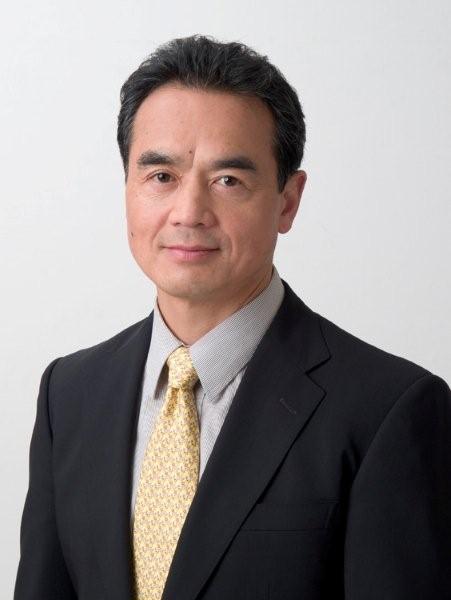Publisher's Message | 発行人からのメッセージ
HR Career Development in a Time of Great Change |
大変化時代におけるHRプロのキャリア開発
Yoshiharu Matsui, Ed.D., MBA, Chief Community Officer, The Japan HR Society (JHRS) |
The Japan HR Society チーフ・コミュニティー・オフィサー 松井義治(ヨシ) Ed.D. MBA

As the pandemic continues to change the future of work, how are you preparing for the future of your own HR career? | 新型コロナ感染症の世界的大流行が仕事の未来を変え続けているなか、自らのHRキャリアの未来にどう備えていますか?
Translated from the Japanese original The COVID-19 pandemic significantly impacted businesses across the world, driving digital transformation and changing the way we work. Such shifts make this an opportune time for HR to make bold strides in enhancing employee engagement and productivity. Change is chance, as we often say. As we continue to navigate this pandemic, what new changes have you implemented, and how have you grown as a human resources professional? Our previous issue of The HR Agenda discussed how to strengthen the corporate culture, one of the key HR missions. In this issue, we would like to introduce various ideas and perspectives regarding the career development of HR professionals. Perhaps many of you are in the midst of building or revising new HR systems and measures amid the pandemic. Such a huge, unprecedented task can leave even the most resilient prone to burnout. Isn’t this high time to look back at your professional growth and think about your future career plans going forward? Career development is not only limited to your progress at your current company; it’s also about your entire career throughout your life. It involves your life mission, how you can realize it, the skills and experiences required to deliver your desired results, and your specific action plans. While it will be difficult for many of us to build a career exactly as we wish, it is important to first develop our career goals and plans, share them with our supervisors, and execute whatever we can do to develop new capabilities. My own career path can attest to the research that indicates 70 percent of learning and growth comes from challenging work experience. Once we have identified our career goals, we must proactively look for challenging job assignments necessary to achieve the goals. At P&G, the second company I worked for, I was transferred from marketing to human resources, and my role has changed every 1 to 3 years with increased responsibilities. During my first two years in HR, I was a corporate training manager, internalizing most of training programs (previously most programs were external), revamping P&G College (the company’s global management training program) and completing work-life balance projects. Before taking on a job we have no experience yet, we must gain new knowledge and skills. In the old days, every time my role changed, I went to the library and read as many books as I can on the new assignment to guide me as I make my self-development plan as well as my business plan. Right now, it's easy to get a lot of data and wisdom from all over the world by simply going online. Research also suggests that 20 percent of growth is achieved through working with bosses and coaches. In addition, in this connected global world, it is essential to connect not only with great bosses but also with global HR and OD experts and professionals through social networks to obtain new knowledge and tools from them. (This is particularly important in Japan, where human resources systems and policies are often out of alignment with global best practices.) Many of you may have seen a video of the late Steve Jobs' speech at the 2005 graduation ceremony at Stanford University. I think his three key messages for young people who are about to start a new life and work can be applied to our career development: (1) Identify our future direction of life by connecting the dots – your various life events to date. What is the connection between the various experiences you have encountered since you were born? What does that suggest for your life’s future direction? (2) Find what you love, do what you really love. What do you really like and what do you want to do with conviction? (3) Time is limited (death will surely come), so listen to your heart and lead your life. How much time do you use your precious time to do what you believe in? Further into my own example, my mission is to build a society of engagement, performance and collaboration. To date, I have been supporting to build engaged, high-performance and collaborative organizations in a variety of ways. My Boy Scout service experiences in elementary and junior high school days, the marketing and organizational behavior I learned during my MBA days and my experiences in customer-centric marketing and employee-centered and results-focused HR and OD have all contributed to making my mission clear. After starting up my own business, I have continually added new skill sets to my repertoire to help achieve my mission, such as certifications in change management, organizational transformation, executive coaching, mindfulness, and a lot more. We hope you will enjoy reading this issue, and take time to reflect on your professional growth to date, clarify your career plans and implement your professional development plan to accomplish your career mission. |
英語と合わせ日本語で出稿
コロナ禍はすべてのビジネスに大きな影響を与え、デジタルトランスフォーメーションを促進し、働き方にも大きな変化をもたらしてきました。今は人事部門にとって、社員のエンゲージメントと生産性に大きく貢献できる素晴らしい時期です。「変化はチャンス」と言われるように、人事プロフェッショナルとして、皆さんはコロナ禍でどのような新たな変化を起こし、どのように成長していらっしゃるでしょうか?
前号では、ミッション達成のために不可欠な企業文化の強化をテーマとしていました。本号では、人事プロフェッショナルのキャリア開発に関して様々な観点からアイデアをご紹介したいと思います。多くの皆さんはウィズ・コロナの環境での新たな人事施策の強化修正を行っている最中かもしれませんが、一度これまでの成長の振り返りを行い、今後のご自身のキャリアの展望を考えてみませんか?
キャリア開発は今働いている会社での開発のみならず、自分の人生の中でどのような社会的貢献をしたいのか、それはどのように実現できるのか、実現に必要となる能力と経験は何か、実現のための実行計画は何か、などを考えながら自身のキャリアを長期的に開発するものです。組織の中で、自分の思った通りに、キャリアを積むことは困難でしょうが、まずは自身のキャリアゴールと計画を立て、それを上司と共有する、また、できることから実行し、新たな能力を修得していくことが重要です。
私も前職2社目のP&G時代、マーケティング部門から人事部門に異動後、1-3年ごとに業務が変わり、責任範囲が膨らんでいきました。人事部門での最初の2年間は、トレーニング・マネージャーとして教育研修の内製化(以前は8割以上外部研修)、P&Gカレッジ(グローバル全社の階層別研修)の刷新、ワークライフバランス・プロジェクトなどを達成しました。
次の1年弱は阪神大震災で緊急タスクフォースのリーダーとして災害時の緊急支援ポリシーの作成、臨時社屋の準備、広報と協働し社員支援のために社内動向と共にライフライン復興状況のデイリーニュース発行、96-98年は台湾P&Gの人事部長として、マネジメントチーム強化、社員エンゲージメント強化、職制/給与のブロードバンディング、台湾経営品質賞への挑戦など行い、98年からは北東アジア地域の組織開発・トレーニング・採用のリーダー、兼、紙製品部門のHRBPとして、組織力とパフォーマンスの強化を行いました。
成長の7割は、チャレンジングな業務経験から、と言われます。キャリアゴール達成のために必要な業務体験に積極的に挑戦することをお勧めします。未知の体験をするには、学習が不可欠となり、新たな知識やスキルをドンドン学びます。ネットのなかった昔、私も業務が変わるたびに、図書館に行って関連図書を10冊ほど読んで、業務遂行計画と共に自己開発計画を作っていました。今は、ネットで簡単に世界中のデータと知恵をかなり入手できますね。また、成長の2割は、上司やコーチからの学びと言われますが、上司や先輩だけでなく、SNSを通してグローバルの人事や組織開発のエキスパートやプロフェッショナルとつながり、彼らから新たな知見やツールを仕入れることも重要、かつ、グローバル時代には不可欠なことです(日本で行われている人事施策はグローバル・ベスト・プラクティスからずれていることがよくありますので)。
故スティーブ・ジョブズ氏がスタンフォード大学の2005年卒業式で祝辞を述べた際のビデオを見られた方は多くいらっしゃると思います。これから社会に旅立つ若者に向けた彼の3つのメッセージは、まさしくキャリア開発を考えるときにも重要だと思います。(1)これまでのいろいろな出来事を振り返り、線でつないで、今後の人生の方向性を考える。幼い時から、これまでに遭遇した様々な体験にどのような結びつきがあるのでしょうか。それは今後の人生の方向性にどのような示唆を与えているのでしょうか。(2)自分の愛することを見つけ、本当に愛することを行う。自分が本当に好きなこと、確信をもってやりたいことは何でしょうか。(3)時間は限られている(死は確実に来る)ので、自分の心の声に従い、自分の人生を歩む。今、大切な時間を自分の信じていることを実行するためにどれくらい使っているでしょうか?
私のミッションは「エンゲージメント、パフォーマンス、コラボレーションの高い社会を築くこと」です。今は、その達成の支援のために、エンゲージメント、パフォーマンス、コラボレーション度の高い組織創りの支援を様々な形で行っています。小中学生時代に体験したボーイスカウトでの奉仕活動、MBA時代に学んだマーケティングと組織行動学、会社に入って体験した顧客中心のマーケティング、企業文化を築く人事、人材開発、組織開発は私のミッションを明確にしてくれました。事業立ち上げ後に修得し資格を取ったチェンジ・マネジメント、組織変革、エグゼクティブ・コーチング、マインドフルネスなどすべての経験が自分のミッションの達成を支援してくれています。 本号を機会に、読者の皆さんが、ご自身のミッション達成のためのキャリア開発計画を見直し、強化、実行されることを切に望んでいます。 |
***
|
TELL US WHAT YOU THINK:






